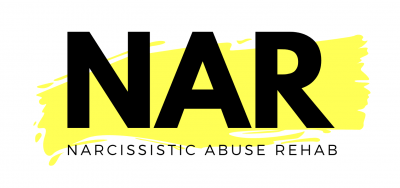An alarming report from the Arizona Coalition to End Sexual and Domestic Violence reveals that the state’s decision to ignore the urgent need to expand existing legislation to include coercive control has made it a hotspot for intimate partner abuse in the United States. According to Arizona’s Family, the state has one of the highest rates of domestic violence fatalities…
Manya Wakefield
Manya Wakefield is a recovery coach specializing in cognitive behavioral therapy and coercive trauma. Her expertise has been featured in publications such as Newsweek, Elle, Cosmopolitan, and Huffington Post. In 2019, she launched the social impact platform Narcissistic Abuse Rehab, building a global audience through human rights advocacy. The same year, she published the book ‘Are You In An Emotionally Abusive Relationship,’ which is used in domestic violence recovery groups around the world. In 2020, Manya developed The Coercive Control Legislation Global Database. She is also the host of The Narcissistic Abuse Rehab Podcast, which is available on Apple Podcasts, Spotify, and Amazon.
The Vermont House of Representatives passes groundbreaking the H.27 Bill to combat coercive control and protect survivors.
Sexual assault lawsuit filed by Liza Gardner against Sean ‘Diddy’ Combs and Aaron Hall, alleges intimidation and non-fatal strangulation.
MCU star Jonathan Majors texts to Grace Jabbari reveal a disturbing pattern of psychological manipulation and physical violence.
Harve Pierre, former president of Bad Boy Entertainment, has responded to the sexual assault allegations he is facing with ‘disgust.’
Joi Dickerson Neal is the second individual to allege that music mogul Sean ‘Diddy’ Combs drugged and raped her in 1991.1 She lodged a complaint in Manhattan Supreme Court on November 23, 2023. Her action came just one day before the expiration date of the New York State Adult Survivors Act. She alleges that, in addition to the sexual assault,…
UK campaigners call for a new statutory offense of manslaughter by coercive control.
Sean ‘Diddy’ Combs breaks his silence as the fifth accuser comes forward with allegations of rape.
A recent report exposes an alarming pattern of systemic failures in femicide prevention by law enforcement in the UK. The study was commissioned by Killed Women, a support network for families of women killed by men. The You Were Told study shows numerous missed opportunities and inadequate responses by law enforcement. In response, family members united, staging a vigil outside…
In Episode 21 of the Narcissistic Abuse Rehab Podcast, we delve into the topic ‘Julie Levine: A Coercive Control Advocate Battles A Rare Form of Cancer,’ and the disturbing similarities between Julie and Catherine Kassenoff’s experiences of coercive control, child custody in the Westchester Family Court, and adverse health outcomes. Like Catherine, Julie has allegedly suffered from years of cruel post-separation abuse from…










